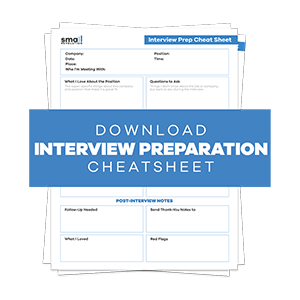Interview sessions allow the employers to assess your technical skills, abilities, and experience. More simply said, your employer will also use this time to get to know you and how well-suited you are to their company.
Poor interview skills is one of the reasons people fail to get online jobs. Therefore, you must prepare yourself well before going into the interview room.
When you’re preparing for a web developer interview, it’s common to ask yourself questions like:
- Which questions will I be asked?
- How will I answer questions about my experience?
- How will I talk about the technical aspects of web development?
Learn how to answer these common questions in a way that boosts your chances of getting the job.
Question 1: What Is Your Web Development Experience?
Hiring managers ask this question to gauge your technical abilities and skills in coding languages like Java and C++. They also want to know how you’ve applied these skills in the past.
How to Answer This Question
- Give your general experience as a web developer: Provide an overview of your experience in web development by talking about the aspects of web development you’re most knowledgeable about that could be: coding, designing, or user experience.
- Describe your experience in detail: Go into specifics and provide examples of how you’ve applied your skills in the past. Don’t be afraid to highlight any challenges you may have faced and how you overcame them.
Sample answer: “I’ve worked on projects that required me to wear many hats and juggle multiple tasks. I was once tasked to build a multi-page responsive website, which required coding, designing, and managing the user experience.”
- Describe your experience with the technology stack you’re interviewing for: If you’re interviewing for a position that requires Linux and MySQL knowledge, talk about your experience with these stacks.
If you don’t have any direct experience with the technology stack they company is using, say so and mention the technologies you are familiar with.
- Share how you applied your skills in the previous roles: Tell the hiring managers how you used your web development skills to handle a project.
For example, “In my previous role, I was responsible for creating the front-end design and coding for the company’s website. Here, I used my skills in HTML, CSS, and JavaScript to create a responsive design that looked great on all devices.”
- End with a positive note: Finish off by stating that you’re excited to apply your skills in the new role and talk about how you’re looking forward to learning more.

Question 2: What Are the Key Roles of a Web Developer?
Employers use this question to gauge your understanding of the web developer role. They want to know if you understand what’s expected of you and if you have the required skills.
How to Answer This Question
Make it clear to hiring managers that the role of a web developer is determined by job description. For example, a web developer’s role will differ depending on whether the hiring firm needs a front-end or back-end developer.
Briefly describe the roles and responsibilities of a web developer as follows:
- Maintaining websites, web applications, and web servers
- Developing new websites, web applications, and features for existing ones
- Optimizing code for optimum performance and responsiveness
- Designing user interfaces (UIs) or front-ends
- Creating back-ends or the logic behind websites and applications
- Implementing security measures like firewalls and user authentication
- Collaborating with other team members, such as project managers, graphic designers, UX specialists, QA engineers, and clients to design, develop, and deploy websites
Finish off by saying that you’re excited about the role and how it’ll allow you to use your creativity and technical skills to build amazing things.
Question 3: What Programming Languages Can You Work With?
This question tests your knowledge of the programming languages you’re familiar with. Your answers tell the hiring managers whether you can work with the coding languages used in their firm.
How to Answer This Question
- Begin by reading the job description. It’ll help you determine the coding language in demand and allow you to prioritize those coding languages.
- Let the interviewer know if you have expert knowledge in certain languages. You might have used HTML and PHP extensively in your previous position and just brushed over Javascript.
Don’t be surprised if the interviewer asks you to work with a coding language you’re not familiar with. In that case, say that you’re willing to learn and are confident that you’ll catch on fast.
- Conclude by saying that you’re excited about learning new programming languages and how that’ll help you in your career growth.
Expert Tip: If you’re not sure about the coding languages used in the hiring company, research ahead of time. You can find this information on the company’s website or by contacting them directly.
Question 4: What Is Javascript? Explain in a Simple Way That Can Be Understood by Anyone
The interviewer wants to test your understanding of Javascript on and off the books.
It’s worth noting that based on the job description, this question will be altered to fit the coding language in demand.
How to Answer This Question
- Begin by defining what JavaScript is. Say, “JavaScript is a programming language that enables a web developer to create dynamic and interactive web pages.”
- After the definition, list some of the interactive and dynamic pages where JavaScript is used. Examples include news feeds, animations, autocomplete suggestions, and interactive forms.
- Give other areas where JavaScript is used. These include backend development, gaming, mobile app development, and scientific computing.
- End by saying that you’re confident in your understanding of JavaScript and excited to use it on the job.
Over to You Now
There you have it. You can now answer the above questions confidently to get your dream job.
It’s worth noting that these questions may vary slightly. The key to getting it right is grasping what the hiring managers will be expecting.
The internet has made earning easy. Thus, as you wait to be called for the web development job you’ve interviewed for, you can start earning from home.
Alternatively, if you already have a job, you can work online part-time to earn extra dollars to supplement your income. However, you need appropriate training to start earning from home.
Small Revolution equips interested people with the right skills to work from home. Enroll in our online course today to start your journey.
I got a job. The employer saw my portfolio on your platform and I made it for the interview. Thank you for making this happen.
Jose Paulo
Frequently Asked Questions
How much can I expect to earn as a web developer?
Web development is an excellent career based on its annual salaries shown in the table below.
| Years of Experience | Average Annual Salary |
| Entry level (less than 1 year | $52,690 |
| Early years (1-4) | $58,380 |
| Mid years (5-9) | $67,530 |
| Late career (10-19 years) | $72,910 |
| Experienced developer (above 20 years) | $81,680 |
What are 3 skills needed to be a web developer?
The three skills needed to be a web developer are
- Computer literacy
- Creativity
- Technical computer skills like mastery of coding languages.
Apart from these skills, you also need communication skills as this is a job that involves interaction with different stakeholders, including clients, UX specialists, and engineers.
Which tool is best for web development?
The best tools for web development are
- Novi BuilderAdobe Dreamweaver
- Sublime Text
These are easy to use and make the web development process simple. Plugins like Grunt and Gulp also help you with coding, debugging, and task management.
What should I learn first for web development?
If you want to become a successful web developer, begin by learning the fundamentals of web development. They include HTML, CSS, and JavaScript.
Once you have mastered these basics, move on to learning more advanced concepts like server-side programming languages (PHP, Ruby on Rails) and database management systems (MySQL, MongoDB).
Share on Facebook:



